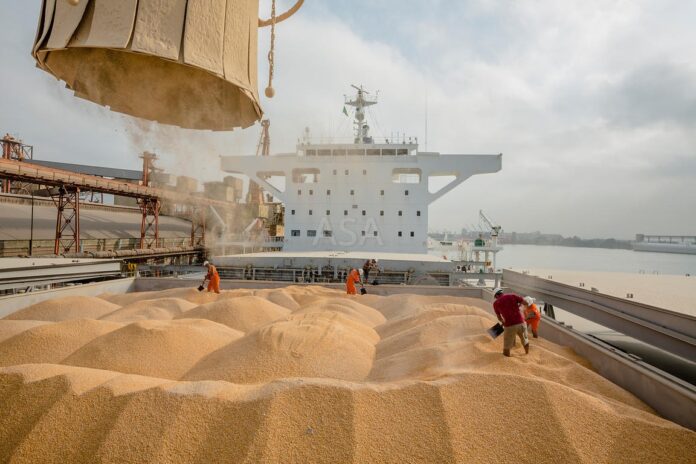ISLAMABAD: The federal government has decided against importing wheat from Russia on a government-to-government basis (G2G), Profit learnt on Wednesday.
According to sources, the Ministry of National Food Security and Research on Tuesday informed the ECC that the government has not approved Russia’s offer due to high prices. The Russian government had offered a price of $410 per MT.
The meeting was informed that a committee was constituted by the PM Office under Advisor to the PM on Foreign Affairs Tariq Fatemi to negotiate with the Russian Embassy on the price issue of imported wheat. Meanwhile, a Russian delegation also met with the Minister for Commerce and offered a reduced price of wheat at the rate of $405 MT and later on the price was further reduced to $400 per MT.
Finally, the Ministry of National Food Security & Research on the recommendation of the Ministry of Commerce submitted the price offered by M/s Prodintorg, a Russian state-owned company, at the rate of $399.50 per MT for 120,000 MT +/- 5% MOLSO of milling wheat.
The meeting was informed that the Russian side had been offered the price of $390 per MT however, they did not accept the offer and cancelled the order. The ECC meeting noted that there is a declining trend in the price which may further reduce in the coming days.
Sources said that TCP has so far booked the import of 0.986 MMT of milling wheat through international tendering process whereas it was directed to import 3 MMT on G2G basis.
It is pertinent to mention here that the cabinet committee on November 11, 2018, had approved the maintenance of 1 MMT of wheat strategic reserves by the Pakistan Agricultural Storage and Services Corporation (PASSCO), including a quantity of 0.080 MMT on account of the SAARC Food Bank.
Subsequently, in the meeting of the National Price Monitoring Committee (NPMC) held on May 3, 2021, under the chairmanship of then federal minister for Finance and Revenue, the quantum of reserves was enhanced to 2 MMT, in order to mitigate any disaster and stabilise prices in the local market.
Therefore, to mitigate the shortfall, the ECC on May 9, 2022, allowed TCP to import 3 MMT of wheat, 2 MMT of which was to come through G2G and 1 MMT through open international tendering process.
A consultative meeting of the committee was convened on July 15, 2022, wherein it was decided that in the wake of rising prices of wheat in the global market, re-verified public wheat stocks and anticipated carry-forward stocks, the quantum of strategic reserves would be reduced to 1 MMT from the earlier decision of 2 MMT. Therefore, total import of wheat was decided to the tune of 1.6 MMT.
PASSCO and Provincial Food Departments have reported public wheat for the fiscal year 2022-23 at 11.10 MMT including imports of 0.986 MMT awarded by the TCP. After commitments and distribution of 10.10 MMT among recipients, there would be a carry-forward stock of 0.996 MMT.
However, this quantity is insufficient in the wake of recent rainfall and floods damages ensuing financial issues of the farmers for the next wheat sowing season, rising local wheat prices and hoarding and smuggling issues. In order to ensure wheat availability and to stabilize local wheat prices, the quantum of wheat strategic reserves will have to be retained at the level of 2 MMT.
According to the food ministry, the current global wheat prices are showing a downward trend.
International Grains Council (IGC) London on 23-08-2022 has reported Black Sea Wheat prices at the level of 338/MT (FoB). With the addition of freight and premium charges of US$ 55/MT the CNF price of Black Sea wheat at Karachi is estimated @ US$ 393/MT. This price is equal to PKR 85.654/MT or PKR 3,426/40 Kg at Karachi.




